Shannon Bennett sensed something was wrong when her unborn daughter consistently measured three to four weeks ahead of her gestational age during ultrasounds.
Doctors questioned whether she may have Down syndrome. The ventricles in her brain had an abundance of fluid. Her big toe and second toe spread far apart.
“For the remainder of my pregnancy I didn’t know what she had,” Shannon said.
About a week after little Kenzie entered the world, Caleb Bupp, MD, a Spectrum Health Medical Group geneticist, solved the mystery.
Dr. Bupp diagnosed Kenzie with Megalencephaly-capillary malformation syndrome, a rare genetic disorder that causes parts of the body to grow faster than others.
“She is one of less than 200 kids worldwide with it,” Shannon said. “There’s not a whole lot of information out there. It was a bit of a struggle at first, not knowing what was going to happen.”
Born on Aug. 19, 2015, Kenzie spent two weeks in the Spectrum Health Helen DeVos Children’s Hospital neonatal intensive care unit.
When growth is not good
Lawrence Foody, MD, PhD, a Helen Devos Children’s Hospital pediatric neurosurgeon, performed brain surgery on 3-month-old Kenzie and placed a shunt.
We were going minute-to-minute and didn’t know if she would make it through (the surgeries). It makes the hair on the back of your neck stand up. We knew we didn’t have another option and that was her best shot.
“Her brain was growing faster than her skull and it started to protrude into the neck cavity,” Shannon said. “We had to watch it really closely. He didn’t want to perform surgery at such a young age, but he was worried about sudden death becoming an issue.”
Kenzie also suffered from a tethered spinal cord at the bottom of her back.
“Hers was being pulled down,” Shannon said. “They had to release that. I took pictures because it was just unreal to see. Her back was almost like a zipper. She had an 8-inch incision on her back and another on the back of her head going down her neck. Where do you hold a baby that age?”
The little fighter soon headed back to surgery for the spinal cord release and to have a bone flap temporarily removed to create more room for her brain.
Because of the extra capillaries, Kenzie is a bleeding risk. During one surgery, Dr. Foody had to stop part way through because she bled so much.
Each surgery carried the risk of death. The family knew it. The surgeons knew it.
But there was no other choice. Do nothing, and she dies. Do something, and at least there’s a chance.
“We were going minute-to-minute and didn’t know if she would make it through,” Shannon said. “It makes the hair on the back of your neck stand up. We knew we didn’t have another option and that was her best shot. Just thinking about it makes me sick to my stomach.”
Steady progress
Despite the rough start in this world, Kenzie is finally making progress.
“She has been blowing our minds ever since,” Shannon said. “She’s hitting her milestones. She’s not sitting on her own, but she’s doing a lot more than doctors ever thought she would.”
Shannon said supportive family and friends, Dr. Foody and Dr. Bupp helped them get through the stressful times.
“Dr. Foody saved Kenzie’s life more times than I can even count,” she said. “And Dr. Bupp is not just there for her but has been a crusader for our entire family. If we have a question, we can email him directly. He’s helped me make surgical decisions. With her disease being so rare, we never know what the right decision is.”
Dr. Bupp said the condition is “ultra-rare.” He made the initial diagnosis based on clinical findings such as webbed toes, smaller-than-normal folds in the brain and size differences in parts of the body.
“Overall, she has done well with all the uncertainty surrounding her condition and how to manage it,” Dr. Bupp said. “The basic concern is whether and when her brain will stop growing too fast.”
Having a baby with special needs, the most common response I get is, ‘I’m sorry,'” she said. “Now that we know her personality, I’m sorry for those who don’t get to know her. She’s one of the best things to happen to our family.
When the brain runs out of room in the skull, it can cause a host of problems.
“Her surgeries have helped create more room for the brain to grow into,” he said.
But the rarity of Kenzie’s condition makes it difficult to determine her future.
“The prognosis for this condition is challenging,” Dr. Bupp said. “With so few cases reported of this, it is unclear what this condition looks like as someone grows up. We think that the brain probably stops overgrowing at some point.”
Dr. Bupp said he and the family are open and transparent about the harsh realities. No one knows if Kenzie will be here tomorrow, let alone next month or next year.
“I’ve talked with the world’s experts in this condition about Kenzie to get their input, and the family has connected with other families affected by (it). I think they’ve done a wonderful job of accepting the diagnosis and the challenges that come with it.”
Still smiling
Shannon said despite all she’s gone through, Kenzie is a smiley and happy baby.
“You’d never know she’s been through what she’s been through,” Shannon said. “It hasn’t touched her spirit at all.”
Kenzie loves to swing in the air and be bounced by her older brother on the bed. She giggles at funny faces.
She already has a favorite song: “You are my Sunshine.”
“If you sing it to her, it will stop her tears,” Shannon said.
If only there were a song that could have stopped the family’s stress during Kenzie’s ordeals.
Shannon said she and her husband, Michael, often grow physically ill because of the stress. Their 3-year-old son, Kyler, regressed during the stressful surgeries. He stopped using the potty and stopped sleeping in his own bed.
“He was afraid we would be going back to the ‘big building’ as he called it,” Shannon said.
Shannon said the experience has brought the family closer together.
“Having a baby with special needs, the most common response I get is, ‘I’m sorry,'” she said. “Now that we know her personality, I’m sorry for those who don’t get to know her. She’s one of the best things to happen to our family.”
Little Kenzie has taught everyone so much.
“She’s the one who’s been through all that and she’s still smiling at life,” Shannon said. “As far as the future goes, it’s a big question mark. That’s the most difficult part. …It teaches us not to take anything for granted and to enjoy every moment.”
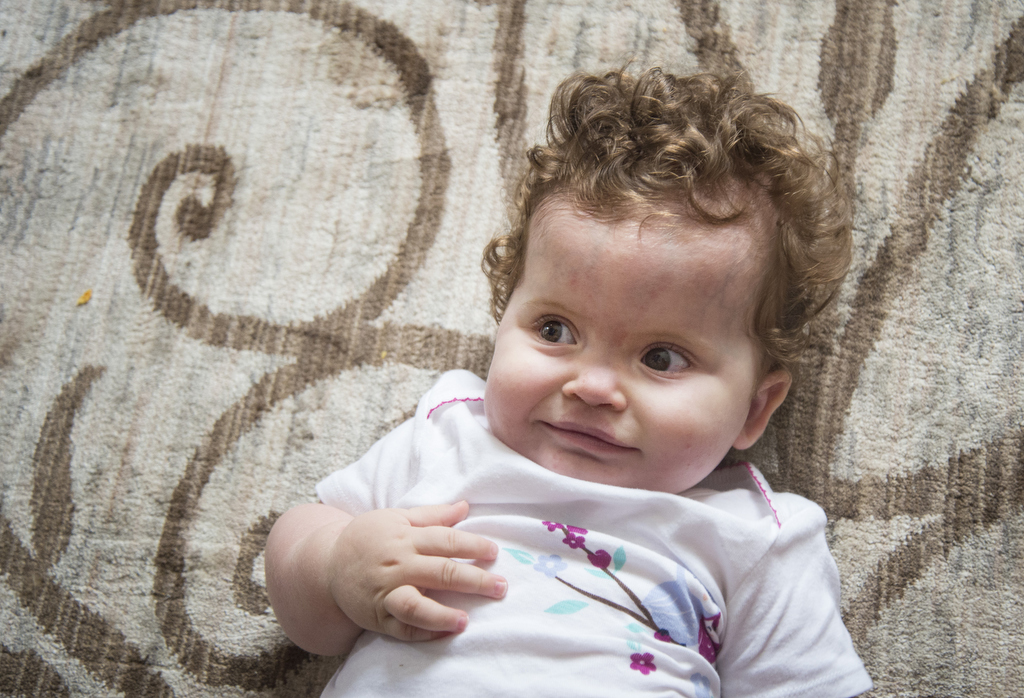
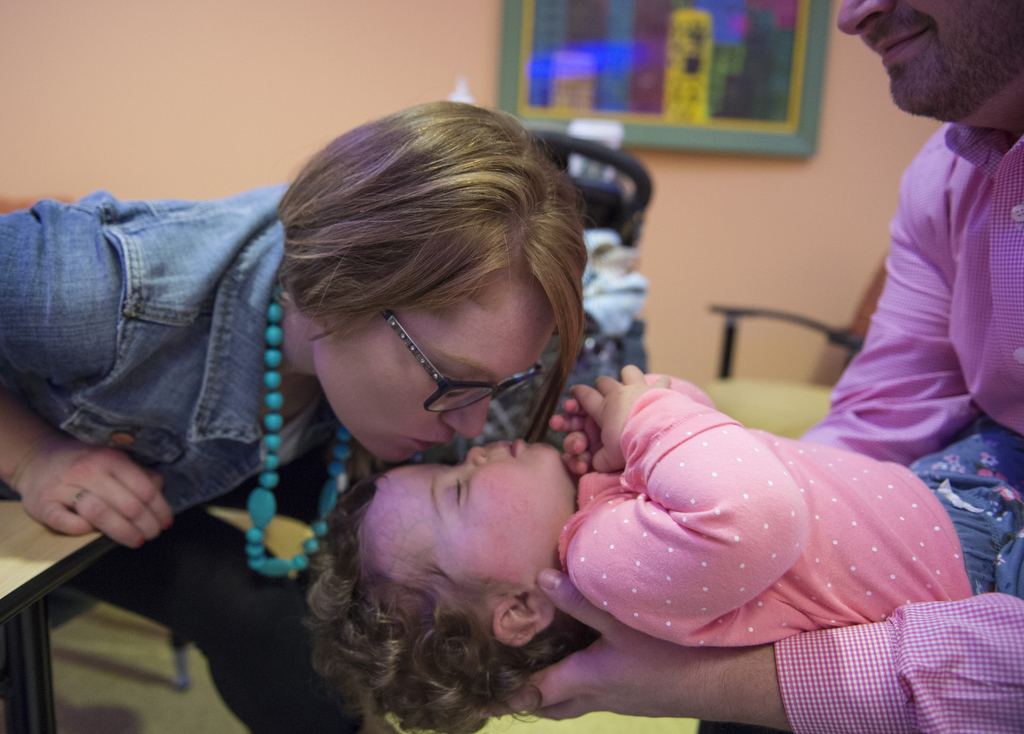
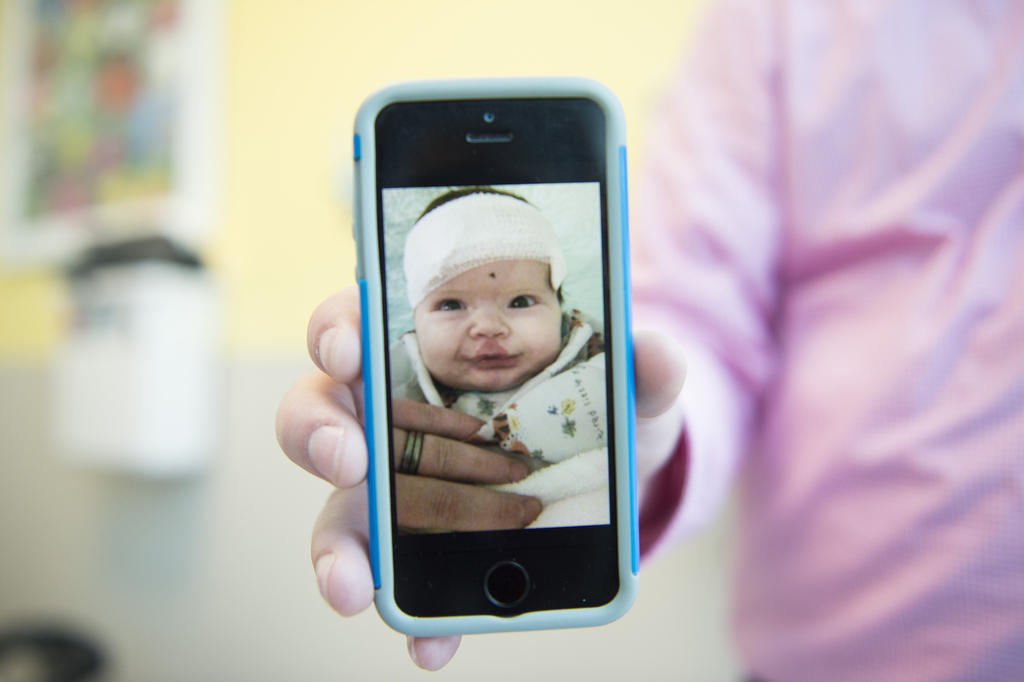
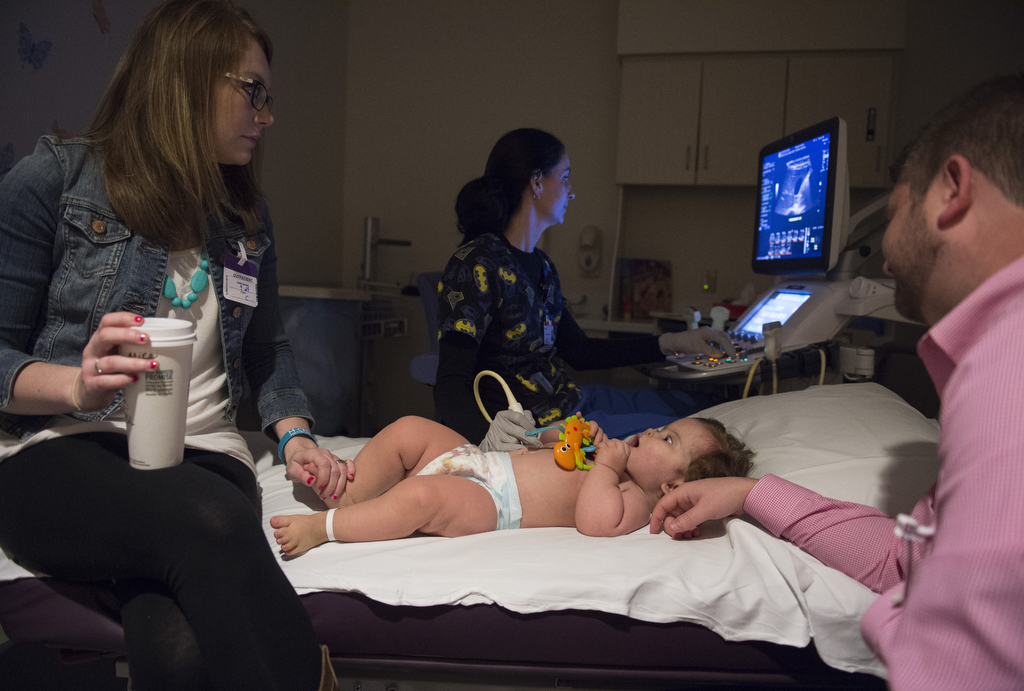
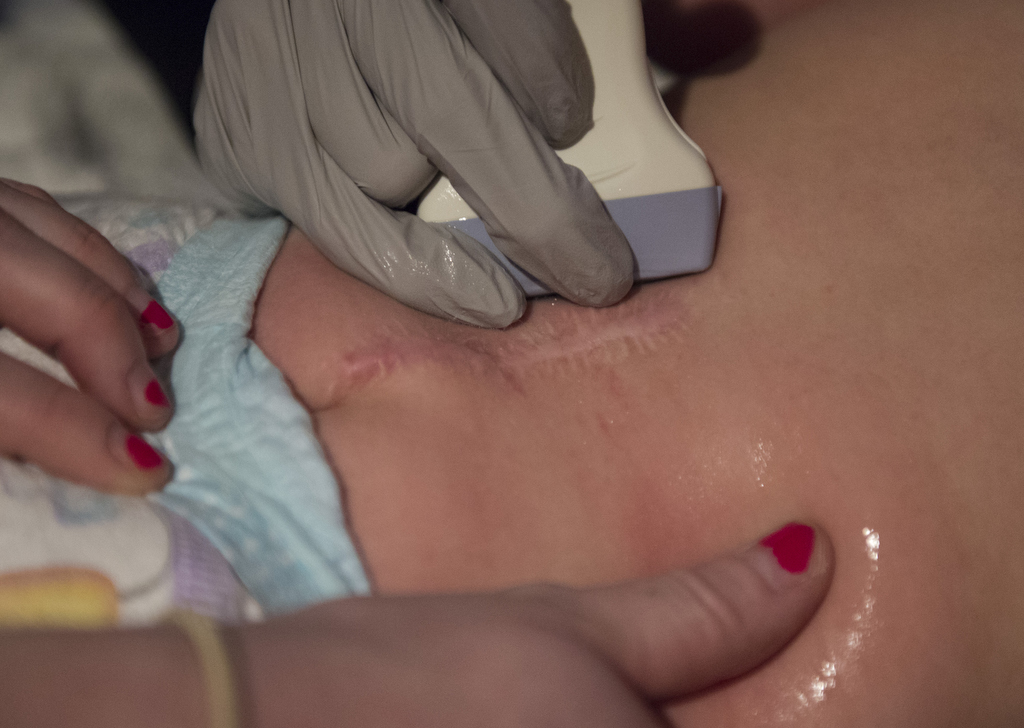
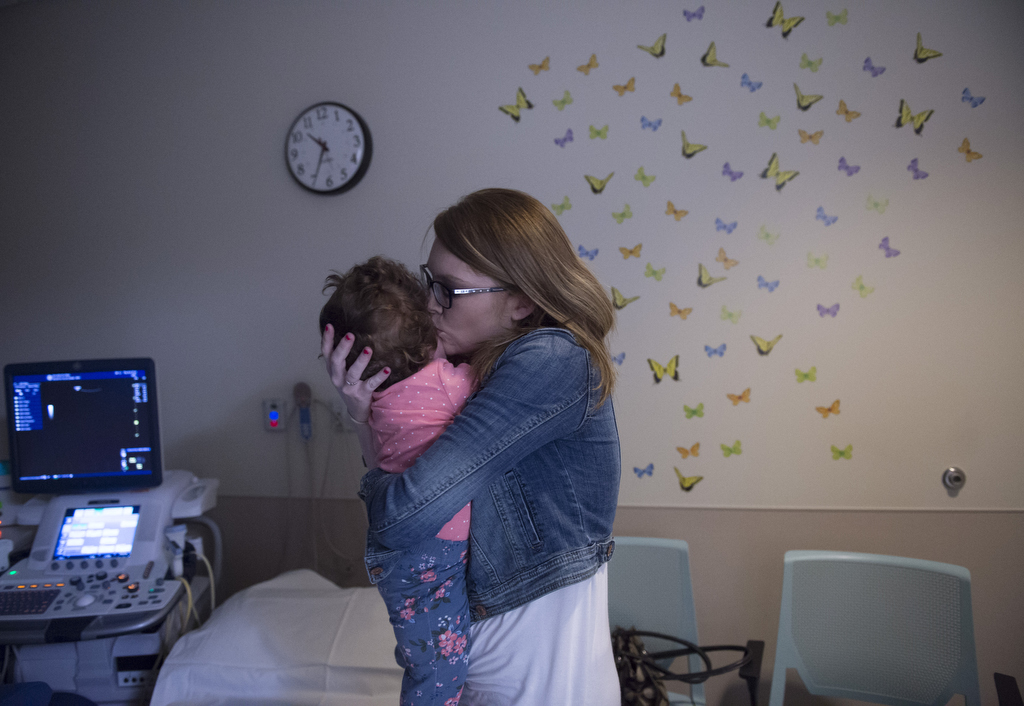
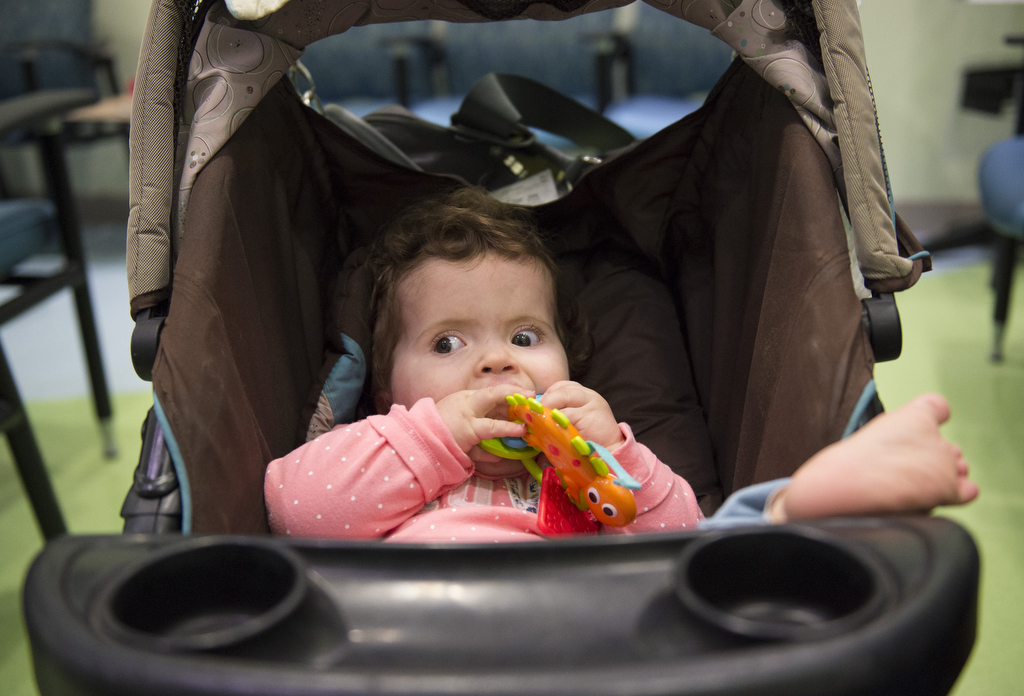
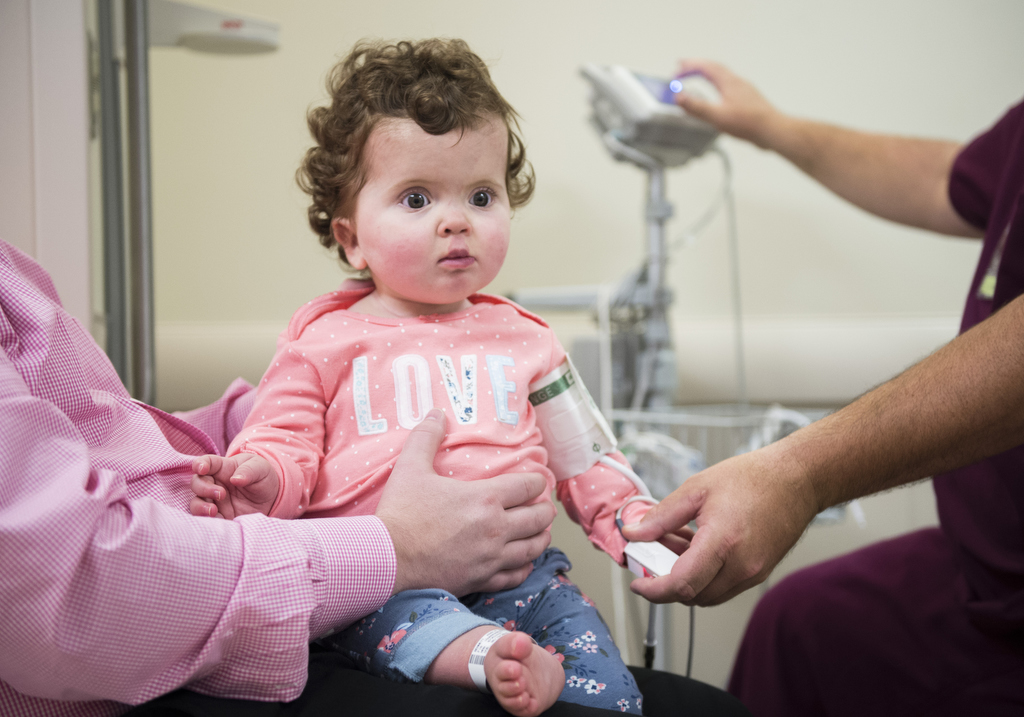
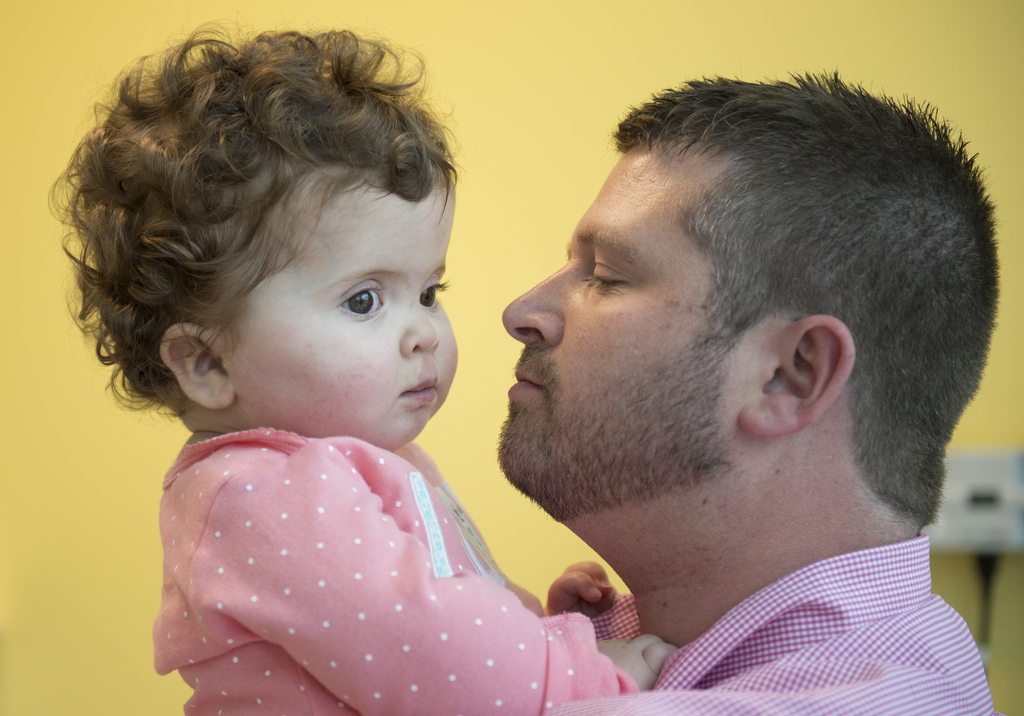
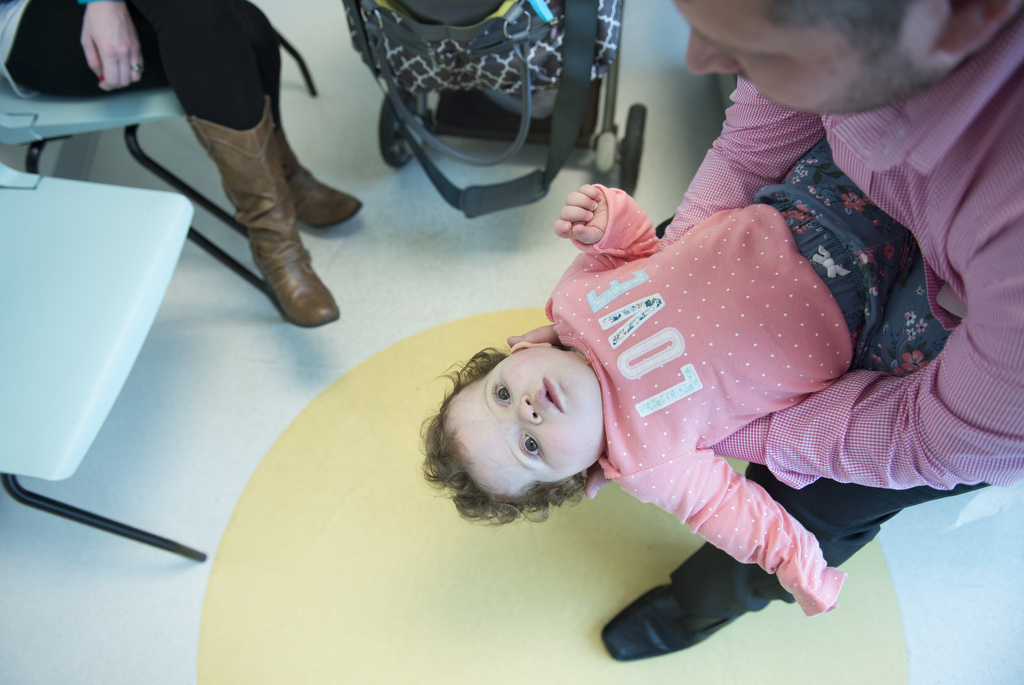
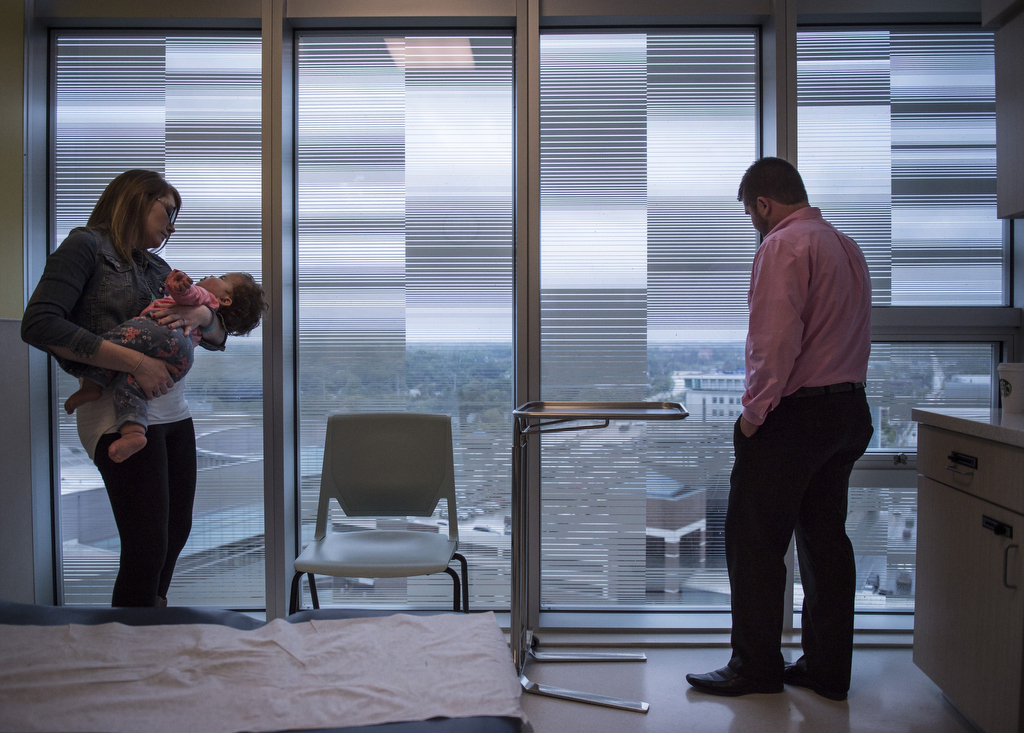
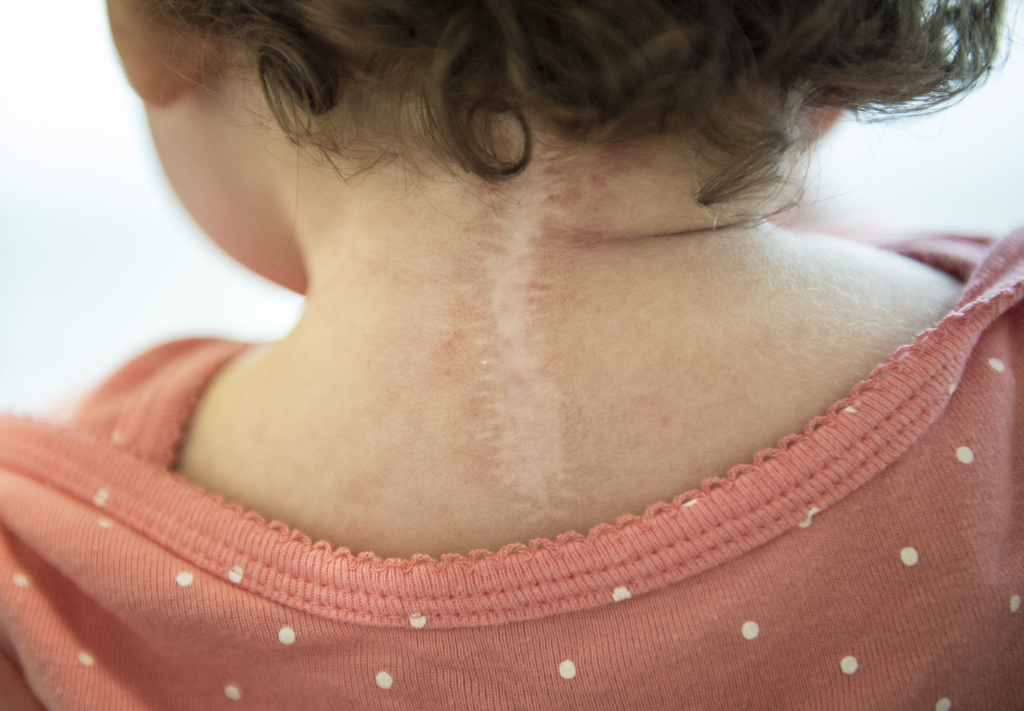

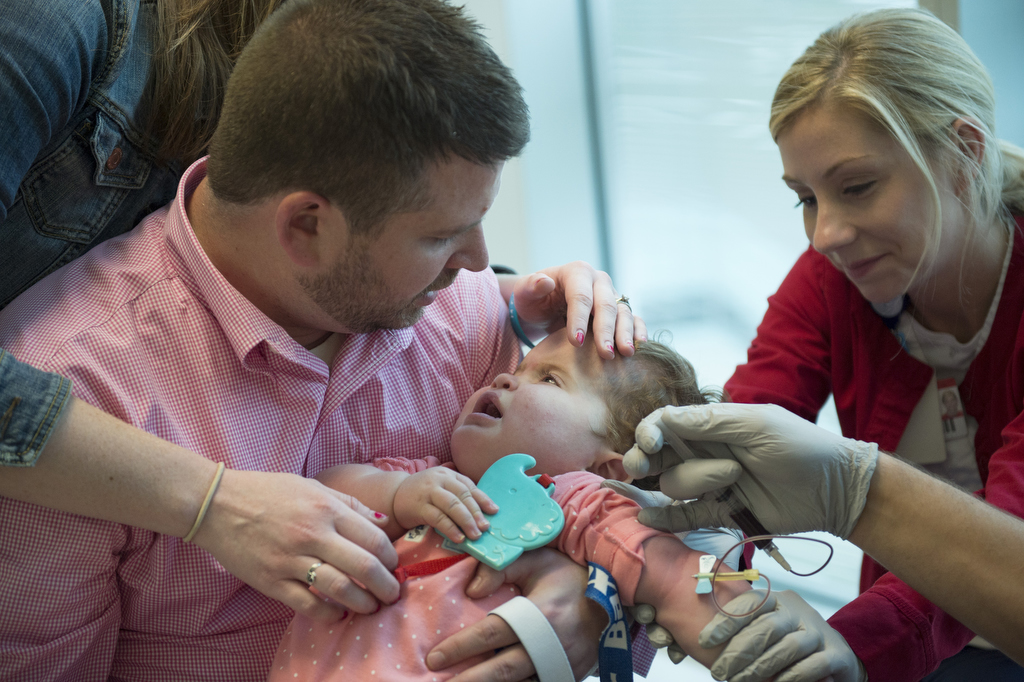
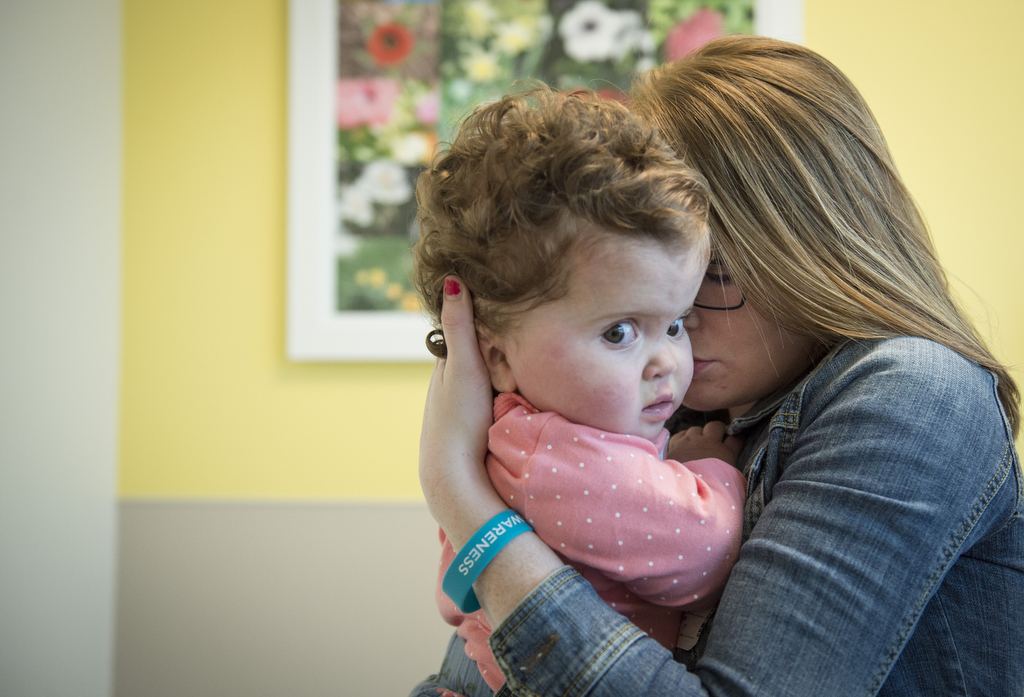
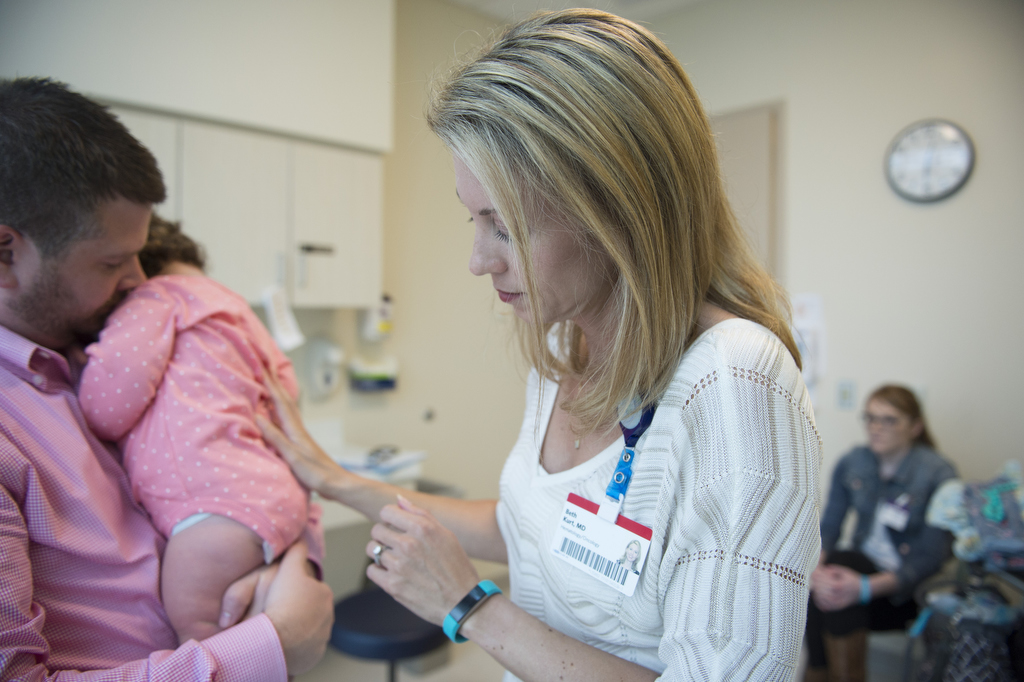
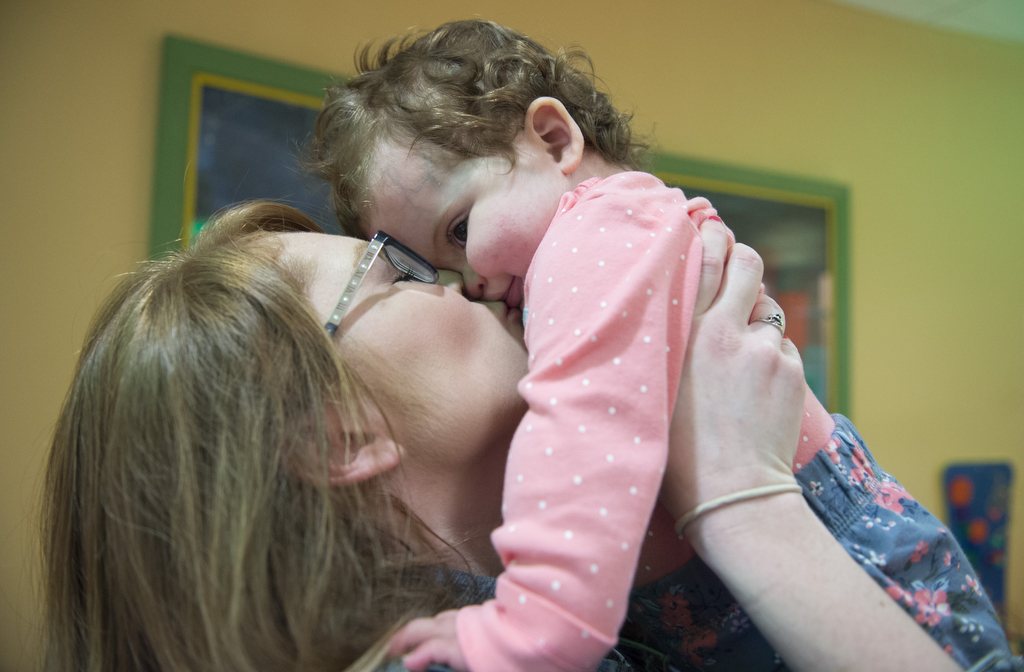
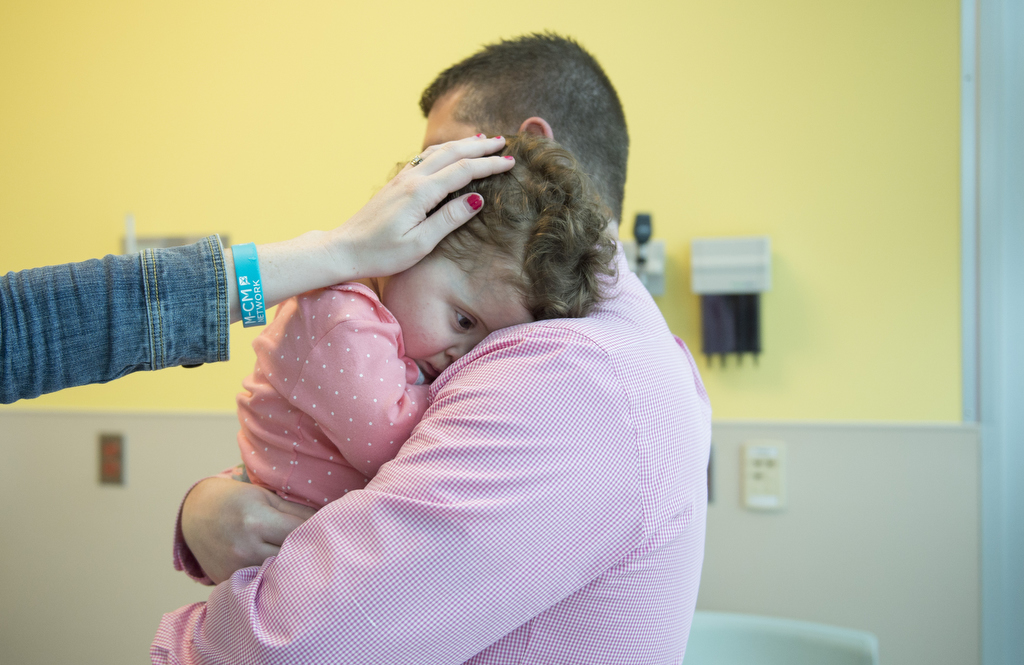
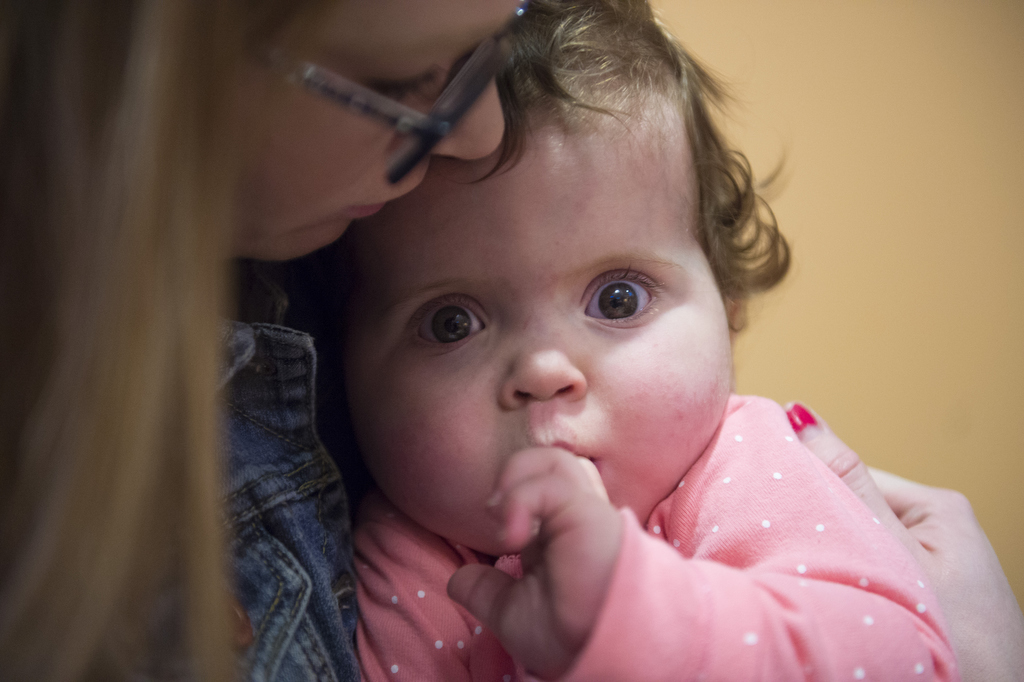
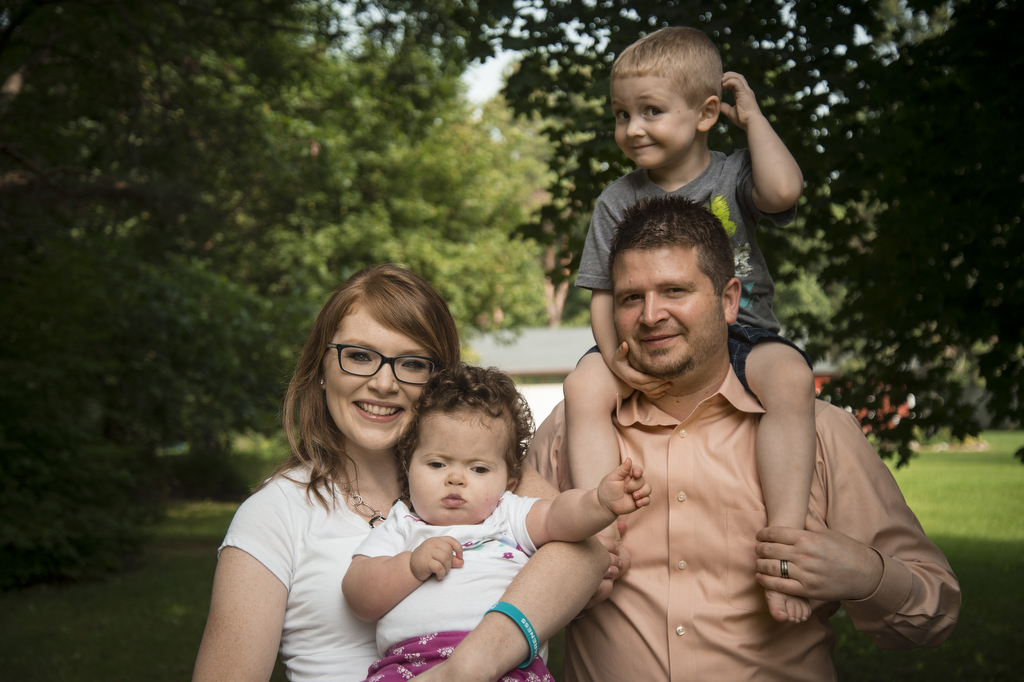
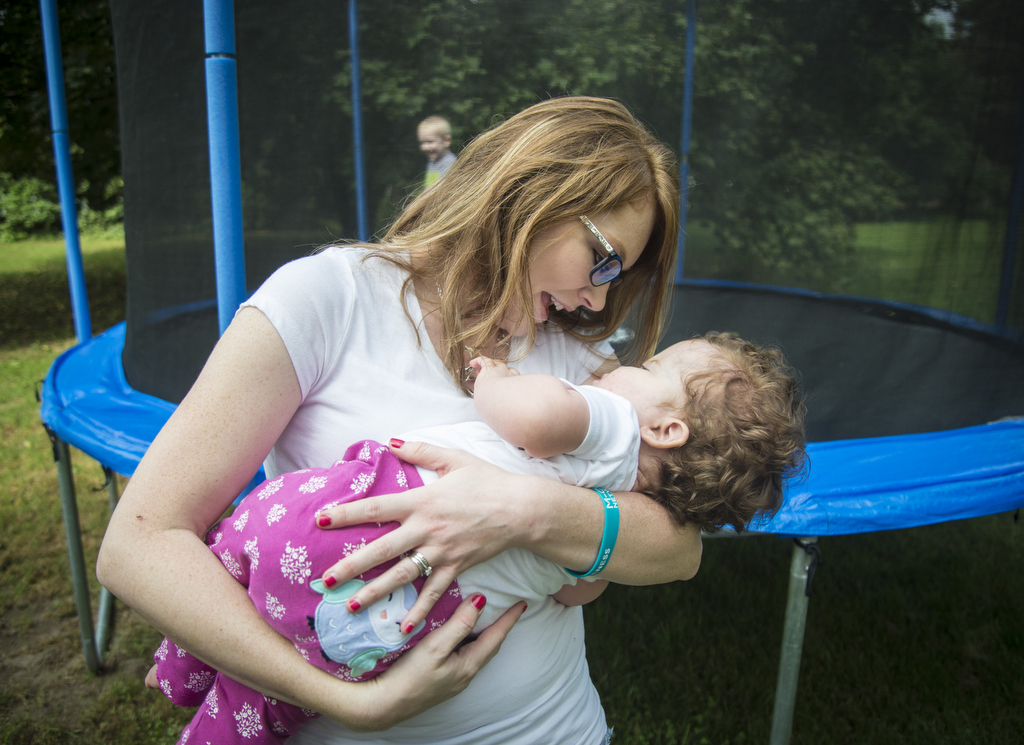
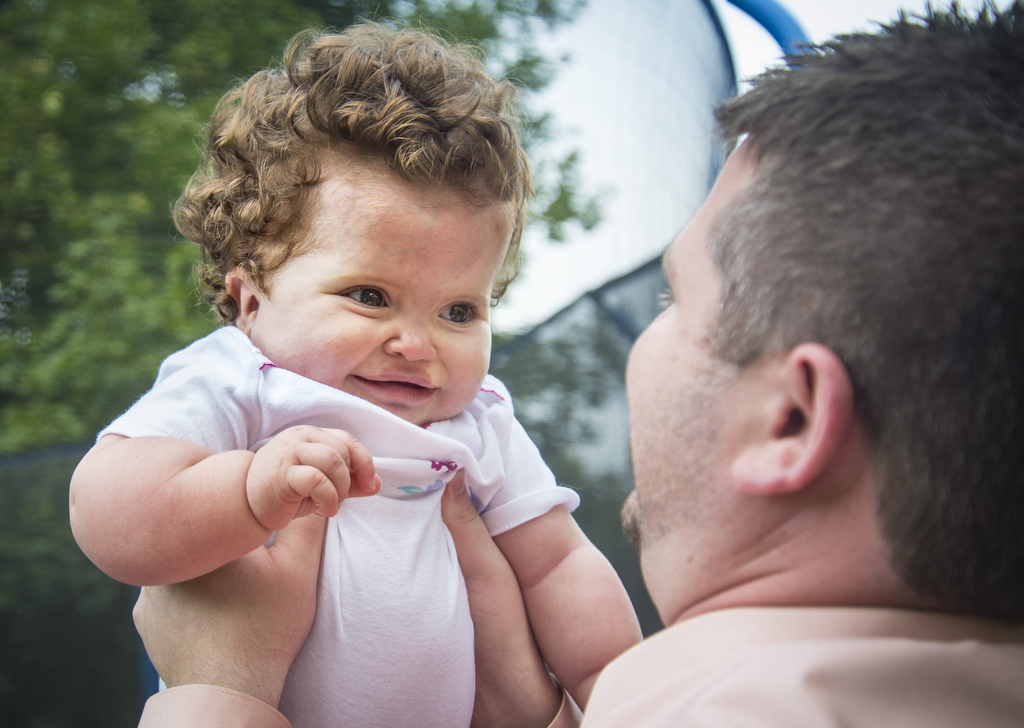
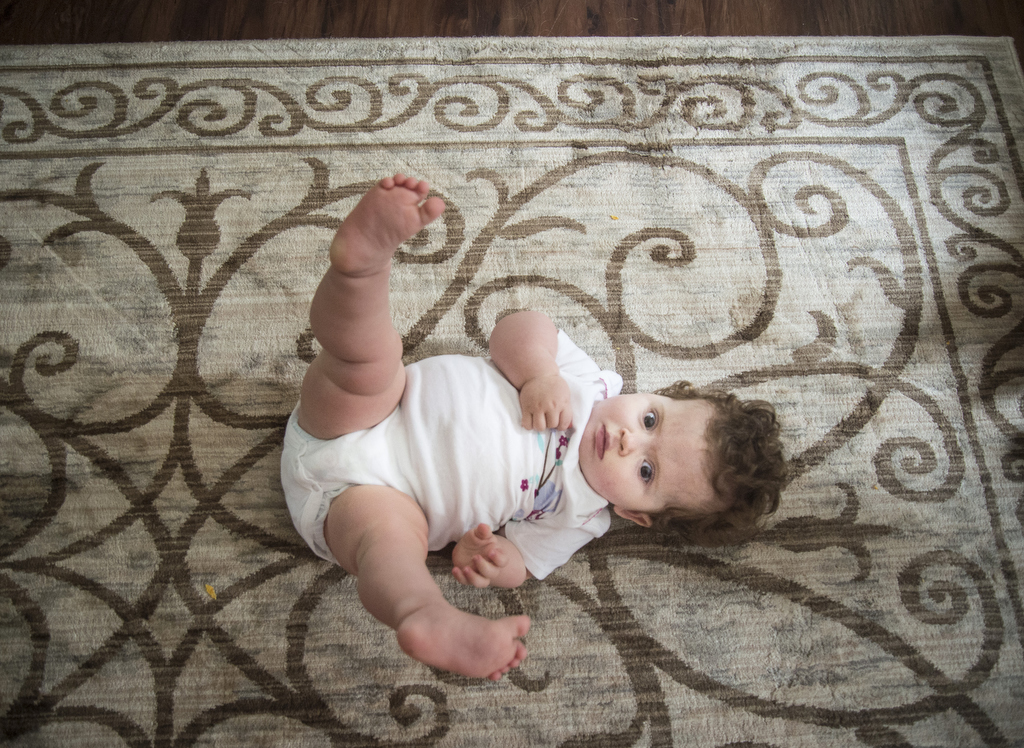
























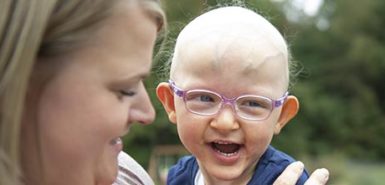 /a>
/a>
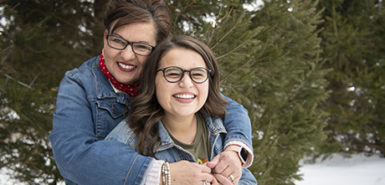 /a>
/a>
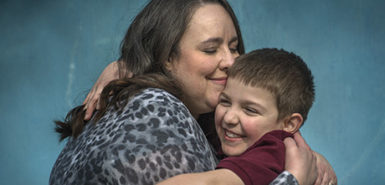 /a>
/a>
What a beautiful baby. Kenzie will make anyone that gets to know her, they will be blessed.
Thanks for sharing Kenzie with us.